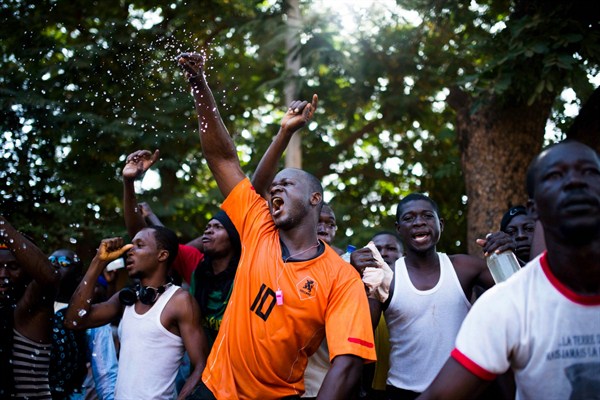On Thursday, more than two dozen ministers from the government of former President Blaise Compaore appeared in Burkina Faso’s capital, Ouagadougou, for the opening of a trial over the events that precipitated their ouster two and a half years ago. Though Compaore’s legal team successfully obtained a one-week postponement, Burkinabe got to see their once-untouchable leadership answering to a court that could potentially hold them accountable for at least some of the crimes committed by the old regime.
The case is no doubt symbolically important for a country that endured nearly three decades of Compaore’s inefficient and corrupt rule, followed by a period of turbulence that featured a successful popular uprising, a failed countercoup and elections in just over a year. But analysts say the trial’s significance will likely be undermined by the limited scope of the indictment, the absence of meaningful participation by the victims of the regime, and the fact that Compaore himself remains comfortably in exile in neighboring Cote d’Ivoire.
Compaore came to power in a 1987 coup that resulted in the death of then-President Thomas Sankara, the much-adored revolutionary leader often described as Compaore’s dear friend and comrade-in-arms. Burkina Faso was largely stable under Compaore, though there were occasional outbreaks of mass protests and mutinies.

